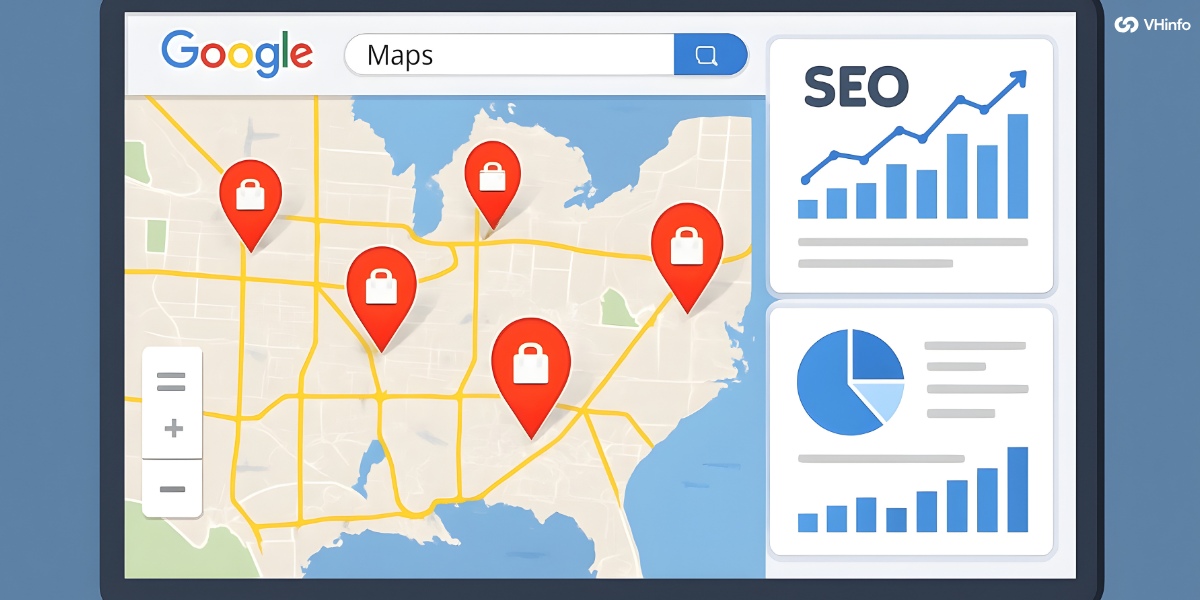Smooth cash flow is what helps a business survive and expand. Without proper finance management in business, not even the finest projects can bloom. Now, we shall have a closer look at strategies to get your cash inflow growing and your bottom line whetting. If you are in a keen perspective to keep your enterprise financially and ready to pursue an opportunity open, here is a set of tips.
Introduction
Every business, whether big or small, needs to manage its money wisely. Business cash flow is the movement of money in and out of your company. It covers everything from paying bills to investing in new opportunities. Poor cash flow can cause missed payments, increased debt, and even business closure.
On the other hand, strong cash flow management will guarantee that your business can meet its obligations and thrive. The U.S. Bank says in a study that 82% of small businesses fail due to cash flow problems; this calls for a need to master how to manage cash flow to keep your business running as smoothly as possible.
It helps a business operate on a day-to-day basis and also is a ground for long-term success. By understanding and implementing the proper steps, you might confidently overcome challenges and direct your business to sustained growth.
Cash Flow in Your Business
Before getting into strategies, it is important to understand what cash flow is and why it is so crucial for your business. For more engaging content on this topic, keep reading.
What is Cash Flow?
Cash flow is the money coming in minus the money going out of your business. Positive cash flow means that more money is coming in as opposed to going out. You can reinvest in your business, pay debts owed, and save for future needs. Negative cash flow, on the other hand, means there is more money leaving your business than is coming into it. Obviously, this might spell financial troubles.
Let’s begin with simple things and categorize cash into three main types. The first is operating cash flow, which refers to money made via your main business operations, such as sales of products or services. The second is investing cash flow, which means using cash for or deriving it from investments in assets, such as buying equipment or financing new startups. The last type is financing cash flow-that’s money received from or paid to investors and creditors, including loans and repayments.
Well, you are able to analyze where your money is going and how to optimize each aspect with this knowledge.
Why Does Cash Flow Matter?
Effective financial management has ample liquidity to pay all expenses, chances for growth, and contingencies. In fact, 61% of small business owners consider cash flow a major source of stress in their business, as a QuickBooks survey shows.
Effective CF management offers operation stability whereby you can give a salary to your employees on time, pay suppliers, and other transactions on time. It allows growth opportunities since you can use the same cash to put the money in new projects or equipment for the expansion plan. It helps you manage and reduce your debt, which is accrued as a result of timely payment without suffering from exorbitant rates. Lastly, it prepares you for any sudden bills that appear without necessarily compromising business operations.
How Poor Cash Flow Impacts Your Life
Poor CF management could affect your business in the following ways:
- Missed payments. The inability to pay suppliers or employees will hurt the relationships and, therefore, your business reputation.
- Increased indebtedness. Resorting to high-interest loans to bridge the shortfall may spiral into a debt trap, hard to come out of.
- Stunted growth. Lack of free funds may prevent taking advantage of chances, such as expansion of the product line or reaching new markets.
- Stress and burnout. Financial instability raises the level of stress in the employer and employees, and also affects productivity and morale in general.
Stress-Free Strategies to Maintain Financial Stability
Maintaining financial stability requires continuous effort. Here are some stress-free strategies to keep your cash flow healthy:
Business Budgeting Techniques
Budgeting is the only way to keep your business finances in order. Zero-based budgeting ensures that each dollar of your income is assigned some form of expense or savings, hence getting rid of wasteful use and making sure resources are put to good use. In the same vein, ensuring that expenses such as rent, salaries, and even specific fees like those needed to manage US expat taxes are factored into your budgeting can further safeguard your cash flow. This kind of budgeting makes you account for every expense; hence, it’s a disciplined way of spending.
Shania Brenson, a leading financial strategist at 15M Finance, emphasizes that a well-planned budget not only helps track your spending but also identifies areas where you can save and invest more effectively. Her insights highlight the importance of meticulous budgeting in maintaining a healthy cash flow and achieving financial stability.
Flexible budgeting allows for the budget to actually change based on actual income and expenses. It provides much more flexibility when dealing with the shifting sands of business conditions. This kind of flexibility ensures that your budget is realistic and responsive to changes in revenue or unforeseen costs without denting financial stability. Incremental budgeting involves gradually increasing your budget allocations as your business grows and revenues increase, allowing your financial plans to keep pace with your business.
Cash Flow Optimization
Smoothing a business’s cash flow requires adjusting many factors. Diversifying sources of income, such as through the offering of new products or services, may greatly improve your cash flow. Finding sources of revenue that will buffer against your main source can smooth out the volatility of your income streams. Additionally, leveraging marketing intelligence can help identify profitable customer segments and market trends, allowing businesses to adjust their strategies proactively for better financial stability.
Receivables management improvement by establishing appropriate processes to reduce receivables outstanding is important. That also means establishing clear payment terms, sending timely reminders, and following up on invoices well in time when payments become overdue to ensure that you get paid without unnecessary delay.
Of course, payables control is equally important: negotiating the best payment terms with your suppliers means you can extend your payables without penalty, thereby managing your cash outflows. Effective payable management means you can have good relations with your suppliers while optimizing your cash flow-a balanced approach to handling your liabilities.
Make Processes with Money Automated
Automate your savings and investments to consistently build your financial reserves. Set up automatic transfers from your checking account to your savings or investment accounts so saving becomes effortless and regular. Note that when you invest wisely, you grow your financial reserves over time and get a source of funds for future needs.
Let’s Plan for Your Business
You need to plan your finances for sustained cash flow management. First of all, set specific purposes, both short-term and long-term, to get a direction in your efforts. Then, develop a plan that contains the steps needed to achieve these goals so you could make progress.
For instance, you wish to buy a new technical car, then calculate how much and how often you should save. Update the plan when you feel that the business can now reach more. Such planning requires identifying the resources and actions to achieve them, so your business stays agile and active. If you’re unsure where to start, a business coach can help clarify your financial goals and keep you on track.
Financial Management for Business
Financial management for business involves four actions: plan, organize, control, and monitor. Good financial management practices will help you maintain a healthy cash flow.
Budgeting
It’s the first step when you decide to manage a CF. Budgeting helps you plan how you will distribute your funds and find areas to cut costs. Well, to develop a budget, you should:
- Check your transactions. Also, monitor fixed and variable costs to know where your money is. Fixed costs include things, such as rent bills, salaries, and utilities, while other costs cover things, such as raw materials and marketing expenses.
- Put in place viable goals based on your data and needs. It is easy to measure progress and focus on the results if your purposes are clearly stated.
- Adjust regularly. Periodically reassess your budget to accommodate changes in your business environment. Flexibility in budgeting allows you to respond effectively to challenges not foreseen.
- Involve your team. Engage key team members in the budgeting process for different perspectives, a sense of ownership, and responsibility.
Using Tools
Manage your cash flow with financial management software. Tools such as QuickBooks, Xero, and FreshBooks will help you manage your invoices, track your expenses, and prepare your financial reports. Such tools will better the process with the following capabilities:
- Automated invoicing. Save your time by automating your billing processes; hence, be assured that your invoices would be in time and timely.
- Track expenses. Easily track and categorize your expenses to gain insight into spending habits and identify areas to cut costs.
- Financial reporting. Provide multi-dimensional reports of performance for in-depth financial analysis that leads to valid and fact-based decision-making.
- Integration capabilities. Most of these financial tools have integration with other business applications, including CRM systems and payroll services; this makes one huge ecosystem of financial management.
Dave Ramsey, a well-known financial advisor, states that you must know where you stand financially before you can make a plan to get where you want to be. Utilizing the right tools can provide the clarity and control needed to manage your finances effectively.
Providing Reviews
Regular financial reviews are important, so you could know your business stays alive with its financial goals. A monthly or quarterly review enables you to know how to:
- Find trends. Observe the negative and positive trend of your cash flow that helps in reconsidering your strategies.
- Catch issues early. The early detection of problems in your finances gives an opportunity to nip them before they start turning into big issues.
- Measure performance. Understand how your business is performing against its financial targets to form the basis for planning and decisions in the future.
- Increase accountability. Frequent review builds accountability for all team members for the financial outcomes of the business.
Accomplishing the mentioned good habits within your regular financial management can enable making more relevant decisions, efficient usage of resources, and improvement in the overall financial health of your business.
How to Improve Cash Flow
Improving your business cash flow means managing your money better. Good invoicing can help you get paid on time. Send your bills right after you send your products to customers. There’s less waiting time for payment. Then, let your customers pay in various ways, such as with credit cards, transfers, or online payment services. This makes it easier for them to pay you.
Moreover (!), let your customers know when the payment is due. You can also offer a discount if they pay early or charge a fee if they pay late. It encourages them to pay on time. If a bill is late, have a plan to remind your customers. You will get your money as soon as possible.
Manage Inventory
It means keeping just the right amount of stock. Well, we’ve prepared a few simple tips to make it easier:
- Order only what you need and buy inventory only when it’s required. It helps reduce costs and prevents having too much stock.
- Use inventory software to monitor it better, predict how much you’ll need, and know when to reorder.
- Watch your sales trends and look at your sales data to understand how much inventory you need. You will avoid having too much or too little stock.
Check your inventory regularly, review your stock to find items that aren’t selling well or are outdated. Offer discounts to sell the extra stock.
Don’t Spend on Unnecessary Things
You know that your business can have more money for things that truly matter. Firstly, look at all your subscriptions and services. Cancel any that you aren’t using or that don’t add value to your business. Next, talk to your suppliers and try to get better prices or terms.
Build good relationships with them to receive discounts and better deals. Encourage energy-saving and find more ways to run your operations. Simple changes, such as optimizing how you ship products, can save a lot of money. Moreover, give tasks that are not central to your business to outsource employees, such as IT support or marketing.
Business Finance Tips from Experts
Suze Orman, a popular financial advisor, talks about maintaining a strong cash reserve, meaning that the key to wealth is not in income but in cash flow. Building a cash reserve provides help and supports your business’s long-term stability.
Experts agree that a well-maintained cash reserve can make the difference between weathering financial storms and facing insolvency. Alright, businesses with a cash reserve of at least three months of operating expenses are more likely to survive economic downturns. If you integrate expert advice into your CF management, you can get information and proven techniques for you.
Final Thoughts
Alright, the fundamental thing of your business’s success is creating and maintaining a healthy CF. By implementing effective financial management for business to improve cash flow, your business becomes financially stable and ready for growth. Start by developing a detailed budget, optimizing your invoicing processes, and managing your debts wisely.
Business finances management is a long process, and you have to be vigilant and active. Follow the guide and build a great safety net that protects your business from urgent challenges!



